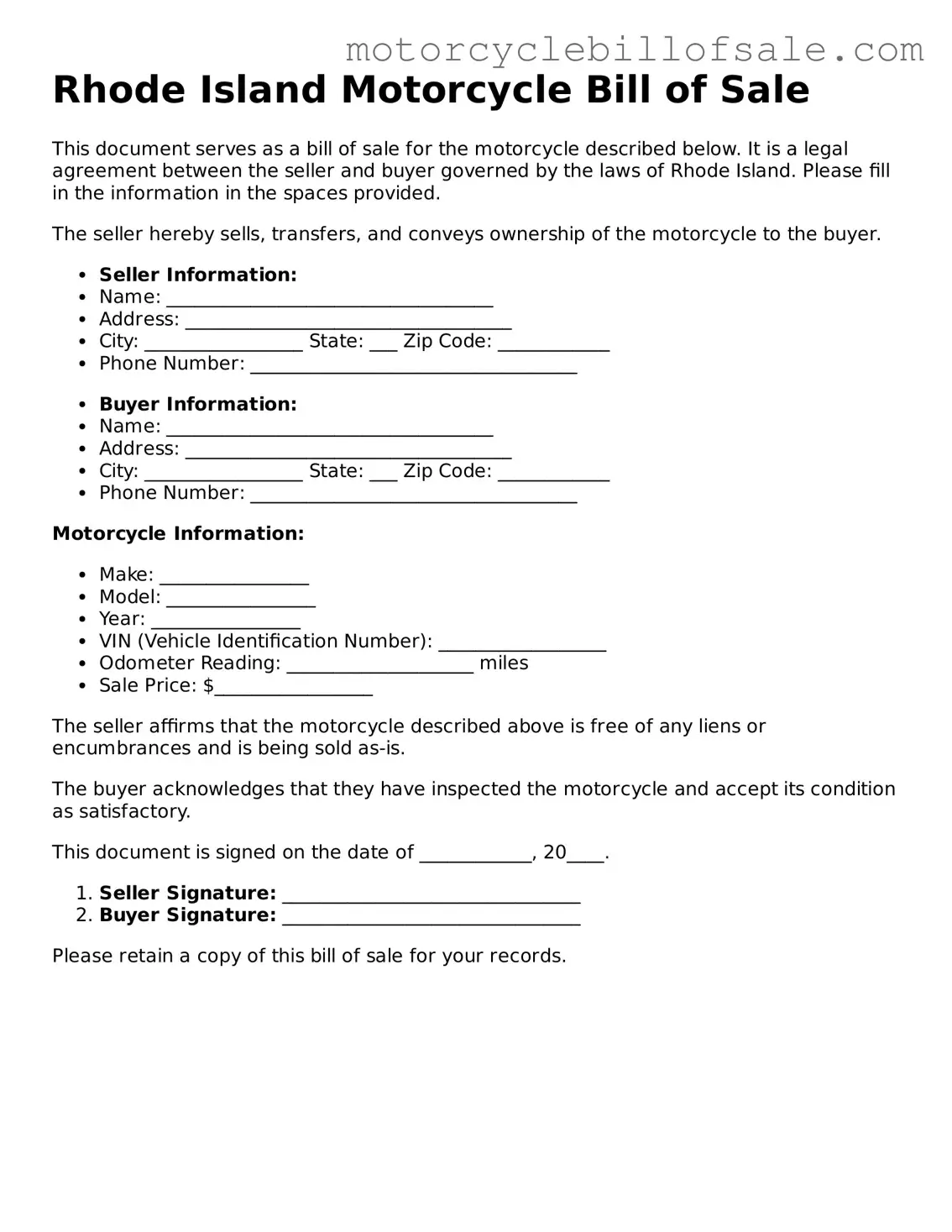Common mistakes
When filling out the Rhode Island Motorcycle Bill of Sale form, many individuals make common mistakes that can lead to complications down the line. One frequent error is failing to provide accurate information about the motorcycle itself. This includes not listing the correct Vehicle Identification Number (VIN), make, model, and year. Each of these details is crucial for establishing ownership and ensuring the motorcycle can be registered properly.
Another mistake often seen is the omission of the seller's and buyer's information. It's vital to include full names, addresses, and contact information for both parties involved in the transaction. Without this information, it may be difficult to resolve disputes or verify ownership in the future.
Many people also overlook the importance of the sale price. This figure should be clearly stated on the form. Leaving it blank or writing an ambiguous amount can create confusion and may lead to issues when the buyer attempts to register the motorcycle.
Additionally, failing to sign the document is a common oversight. Both the seller and buyer must sign the Bill of Sale to validate the transaction. Without these signatures, the document may not hold up as proof of sale, which can complicate matters for both parties.
Another mistake is not dating the Bill of Sale. A date is essential as it marks when the transaction took place. This can be particularly important for tax purposes and for establishing a timeline in case any disputes arise later.
Some individuals may also forget to provide a clear description of the condition of the motorcycle. Including details about any existing damages or modifications can protect both the buyer and seller from misunderstandings. A well-documented condition helps ensure transparency in the transaction.
People sometimes neglect to check for any liens on the motorcycle. If the motorcycle has an outstanding loan or lien, the seller must disclose this information. Failing to do so can lead to legal complications and potential financial liability for the buyer.
Finally, many individuals fail to make copies of the completed Bill of Sale. Keeping a copy for both the buyer and seller is essential for record-keeping and future reference. This simple step can save a lot of trouble if questions about the sale arise later.
